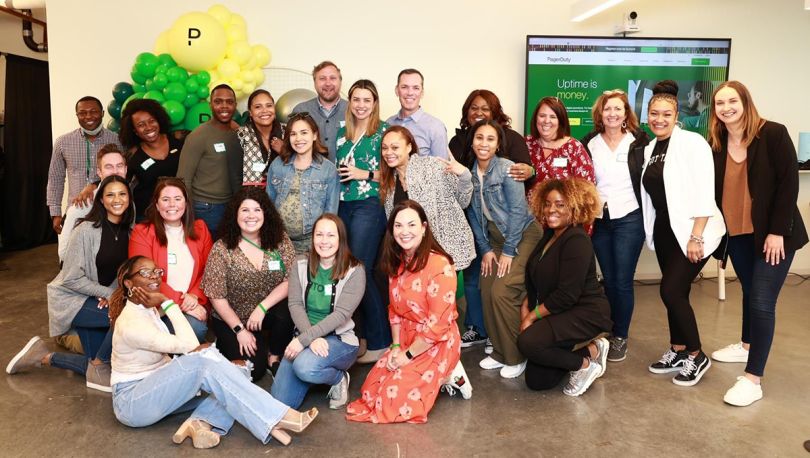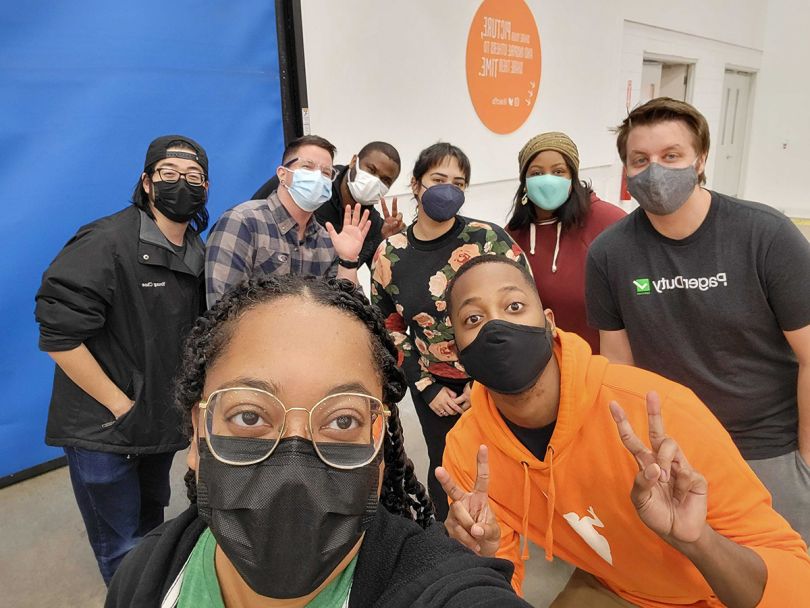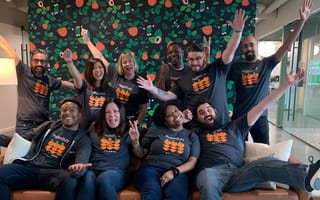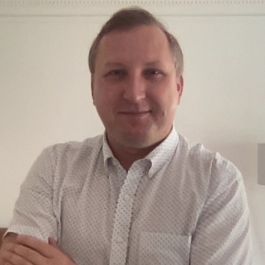Ask PagerDuty’s recruiters what they look for in a candidate, and you’ll be rewarded with a wealth of insights.
For instance, in expanding the workforce behind PagerDuty’s fast-growing digital operations management platform, Marika Perry always works to assess a prospective employee’s energy as much as their experience.
“We’re looking for people who have a fresh, enthusiastic personality, that want to work hard and create something meaningful,” Perry, a talent acquisition manager, said. Simultaneously, Perry and her colleagues look back over a candidate’s job experience — to assess their professional journey to date, of course, but also to look for clues as to where their path might be leading them next.
“We are a high-tech SaaS organization,” Perry added. “ So we look for people with experience in similar environments, who understand a fast pace, want to accelerate their skills, and can grow quickly.”
Growth is a regular topic of conversation across all departments of PagerDuty. The company, which specializes in digital operations management, reaches over 19,000 customers globally and boasts brand-name clients like Cisco, Zoom, DoorDash, Shopify and Electronic Arts. Its success shows no signs of slowing: Q4 results for fiscal 2022 saw the company deliver $281 million in annual revenue (a 32 percent increase year-over-year) while also scoring a dollar-based net retention rate above 120 percent — for the fifth consecutive quarter. Given these gains, recruiters at PagerDuty have been encouraged to focus on bringing in talent with a similarly bottomless appetite for growth.
“PagerDuty is a product-led growth company, and we are cultivating a purpose and value-driven culture,” Perry said. Alongside Sarah Solecky, lead recruiter for North American sales, and Joe Kocevar, lead talent acquisition partner for technical recruiting, Perry seeks out candidates with leadership potential, who champion others and seize opportunities as they see them. That said, the ideal PagerDuty candidate doesn’t look or act one particular way, and recruiters focus on creating a candidate experience that makes everyone feel welcome.
“It’s always about encouraging the candidate to be themselves,” Solecky said. Recruiting is never just about filling open positions; it’s also about meeting a diverse set of candidates and seeing each one as a complete, complex individual. In short, it’s about empathy, agreed PagerDuty’s recruiters.
“In our organization, we make software, but we’re humans making software,” Kocevar said. “We keep that in focus.”

When recruiting, what do you look for in candidates? What unites the people who come to work at PagerDuty?
Joe Kocevar: Hiring managers look for someone who leads with empathy. You can be fantastic at your job, with years of experience. But do you elevate those around you? Maybe you have the best idea in the room, but do you make space for other new and different ideas?
Sarah Solecky: If you come in as a candidate and have a positive attitude paired with empathy, recruiters will want to move you through the process and see where your skill sets lie. Throughout the whole process, I encourage candidates to come prepared with a laundry list of questions. That intellectual curiosity will resonate well. People love when you’re creative, have a fresh perspective, and color outside the lines to creatively problem-solve.
In today’s job market — shaped by pandemic-precipitated layoffs, the popularization of remote work, and the Great Resignation — candidates are re-examining what they want from work. As recruiters, how has this informed your approach?
Marika Perry: The Great Resignation has impacted every organization. However, our employee culture is focused on wellness. For example, the executive team at PagerDuty has implemented wellness days that we take once a month, collectively, as an organization. Candidates appreciate when I talk about that. We also have what’s called HibernationDuty, a week off at the end of the calendar year.
This was so well-received that we now have a mid-year Wellness Week. PagerDuty emphasizes self-care and holistic wellness to all of its employees. That’s a huge sell when we’re trying to navigate with candidates considering multiple options. Let’s face it: the ball is in their court. It is a candidate’s market. They are looking for added attributes that make the culture one they’d want to join.
Kocevar: When all 1,000 employees take the same mental health day every month, you don’t have to play catch up when you get back. The joke is that we provide incident response management software, so if something goes wrong, we’ll be notified.
When Sarah and I joined, we found out about these mental health days and said, “Wait, what? This is pretty cool!” It’s huge for retaining talent at PagerDuty. And when we say “retain talent,” we want to promote talent.
Solecky: We have the opportunity, in the interview process, to focus on how people-centric our organization is. We also have direct and transparent conversations with our hiring managers, to tell them they might have to hire on potential as opposed to experience. If you hire on potential, that’s where you get those great stories, in terms of seeing people flourish and grow. They’re hungry, they’re eager and they want to prove themselves. That’s what creates this continuous drive and success that PagerDuty has seen.
That’s another major draw for candidates right now: the feeling of being cultivated by your workplace, sensing a path forward for your career. How do you discuss professional growth and development while recruiting?
Perry: We’re growing right now, at 32 percent year-over-year and there are many opportunities to scale. What’s happened with that level of growth is that, internally, we’re noticing people getting promoted and moving into different roles. What’s exciting and progressive about PagerDuty from a job architecture standpoint is that it’s not just a vertical ladder. You can go horizontal. Recently, our CEO Jennifer Tejada stated that the job architecture is more like rock climbing; you can go where you see most fit. Leaders and managers cultivate your goals with a goal-setting structure. You get the opportunity internally to foster your own growth alongside your hiring manager. There’s ample opportunity to leverage your skills in your same vertical and business unit or even transfer cross-functionally into new opportunities. I’ve seen both happen.
Kocevar: Marika and Sarah are probably sick of me mentioning my Three Cs.
Perry: I was waiting for you to bring up your three Cs! Yay!
Kocevar: [laughs] They stand for career growth, compensation and culture. When I talk to candidates at any level, I give them a chance to talk about that. If you look at your own career, you can probably say career growth, compensation and culture are what either keep you in a job or get you thinking about going somewhere else. Your question before this was, “What about the Great Resignation?” Candidates are going to tell us, culture-wise or career growth-wise, why they resigned. We can be upfront with them and say whether the career growth opportunity they’re looking for is here for them. We’re not just talking about money. We want to get to the root of what a potential employee wants to do with their career and meet them there.
Solecky: In the past, people would change jobs three to four times during their careers. Now, candidates are changing jobs up to 11 times a decade. That’s a huge shift. We have to look at the person and see where our interests and ambitions align. PagerDuty has done a great job at understanding the employee and matching them with an opportunity that satiates that growth they want.
The sales team I support put effort into building out career architecture, to give entry-level people opportunities to jump into closing roles and continue to climb up the corporate ladder. Even within certain roles, what our business has done is apply different levels to a single role, so people can become subject-matter experts. When I look at some of the other organizations that I’ve worked for, they haven’t been that progressive. PagerDuty is special in understanding their people, providing those opportunities to be productive and engaged.

PagerDuty has achieved gender parity in its leadership and board; half its board is female, and 75 percent of its board of directors is non-white. The company commits to Pledge 1%, which dedicates one percent of equity, product and staff time to philanthropic endeavors. As recruiters for PagerDuty, how much does it change for you to have these hard numbers that back up its promises to diversity, equity, and inclusion?
Perry: Every slate of candidates we provide to our hiring managers is diversified, meaning that there are female-to-male ratios and those from underrepresented backgrounds are present. Because we have a diversified board and leadership team, it’s a part of our culture and something we all talk about with each and every candidate. We want to ensure that people who join the organization understand that our DNA is around inclusion, diversity and equity and that they’re comfortable with that. At the leadership level, we have a lot of questions around how you hire with a diverse lens. It’s incorporated into every area of our interview process to ensure that, if it is a diverse candidate, we’re showing them that they have an opportunity to thrive here. If it’s a non-diverse candidate, we know they’re accepting of an environment that welcomes everyone. At the end of the day, we want people who are unapologetically themselves.
Solecky: We have a lot of pride in terms of how we contribute to and want to accelerate change both locally and globally. Even in terms of our total rewards package, we give every single Dutonian 20 hours of paid volunteer work a year, because we know how significant volunteering within people’s local communities is. As a remote company, it is important for us to continue to always give back. When you look at our accelerated success in terms of sheer revenue that the company has been producing, how accomplished the business has been over the last few years, there is still a keen focus in terms of giving back. In the social impact report that was just published in April, we have $1.8 million in funding deployed, and 92 percent of our Dutonians this past year volunteered or donated to a cause. Not only are we disrupting the tech industry with our product, our services and our platform, but we’re also trying to positively impact our own communities.
At the end of a particularly memorable job interview I once sat for, I remember asking whether there was any skill I hadn’t already spoken to that my interviewers wanted to hear about, that they felt was vital to any candidate’s success in the position. Are there any questions that you especially encourage candidates to ask in interviews?
Solecky: As much as we’re interviewing you, you’re also interviewing us. Making a career change is a big decision. Get as much information as you can, so that you can make that educated final decision. You have an opportunity to evaluate not only is this the role for me, but is this the leader for me? Is this where I want to be for my next step? As recruiters, we’re always checking in. How are you feeling about the opportunity and the role? How are you feeling about your potential new manager? Are there concerns? You want to vet that out as early as you can and be in tune with their expectations.
Perry: First and foremost, thank you for sharing your story, because it reminded me how much I love for a candidate to ask that clarifying question at the end. It’s a tip I provide to candidates, to say, “Was there any gray area in my responses? Is there anything I can clarify further for you, to make sure you have a full outline of who I am and what I can do?” That’s spot-on. You want to make sure there's no ambiguity once that conversation has ended, and that the hiring manager walks away fully in tune with who you are and your abilities.







